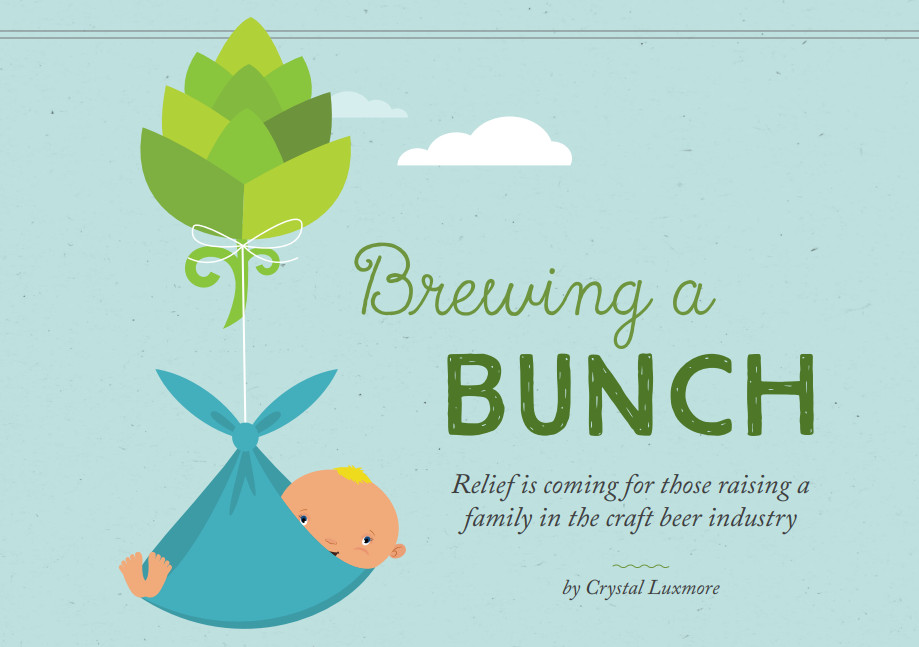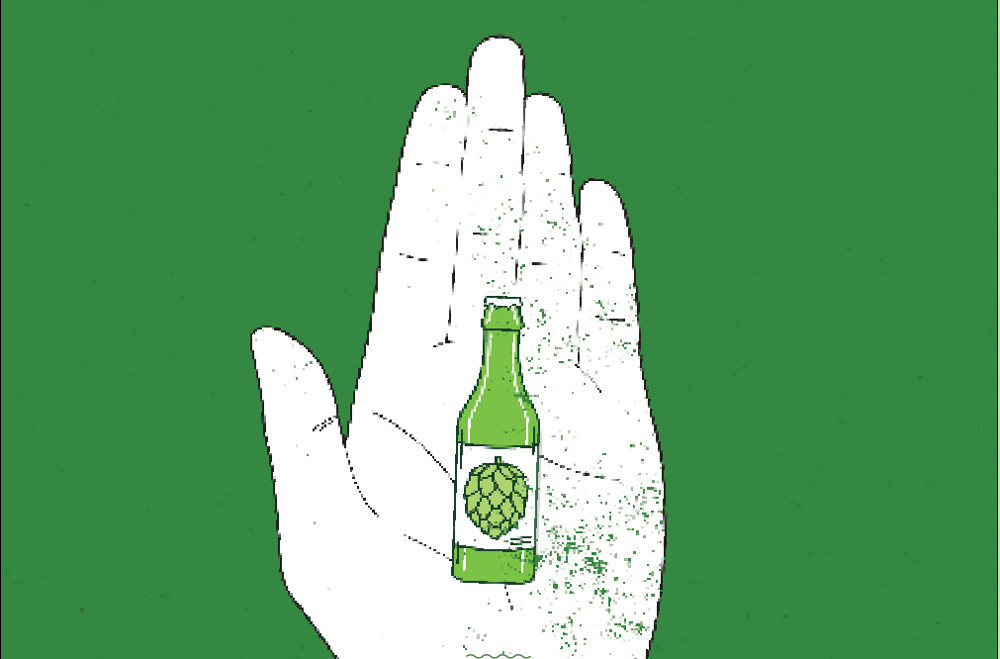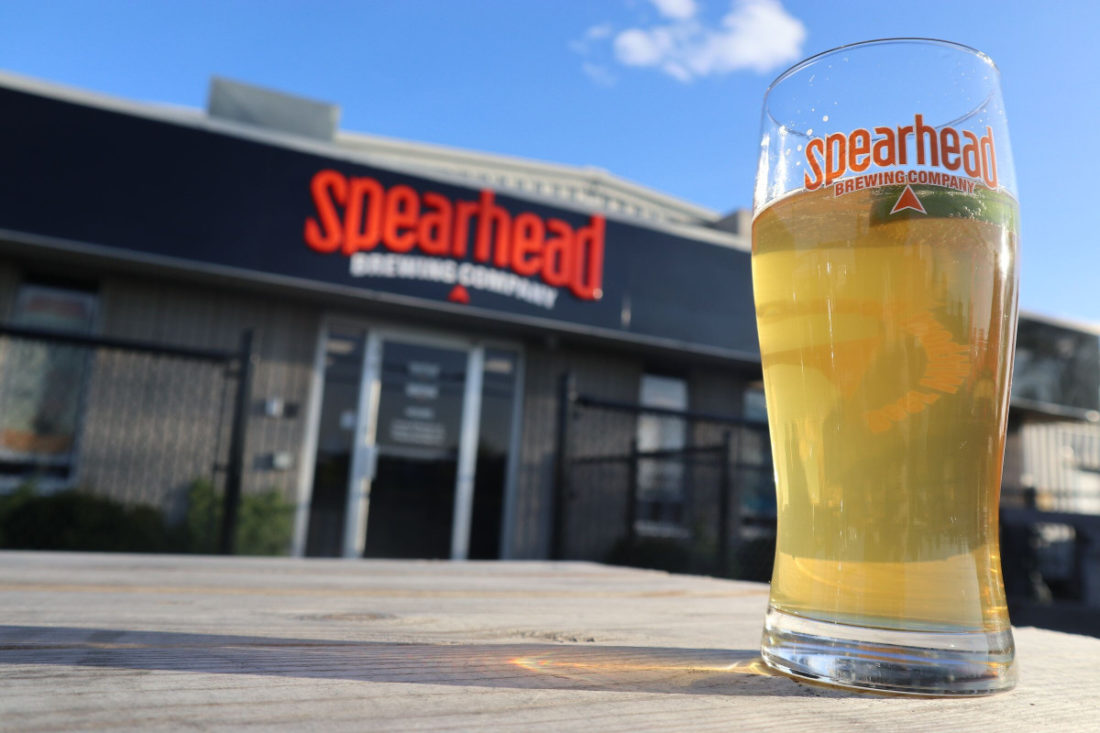
By Jordan Duff
On March 30th of this year, Spearhead Brewing Company celebrated it’s one year anniversary at its Kingston brewery. The celebration included, among other festive activities, a performance by Sam Roberts, friend of the brewery and face of their Sam Roberts Band pale ale.
If you’ve been paying attention, and I’m sure you have been, you’ll be surprised to hear the Spearhead brewery is but one year old, especially since their Hawaiian Style IPA and Moroccan Brown Ale have been part of the craft beer-scene since there was a scene. I distinctly remember my first Spearhead IPA was enjoyed many years ago at Toronto’s Royal Agricultural Winter Fair – a weird place to sample beer, but I enjoyed it.
Though they just opened a physical space, in fact, the company was established in 2011. Spearhead president, Josh Hayter, was kind enough to take me along the eight-year journey that has brought the company to where it is today and how Kingston became home.
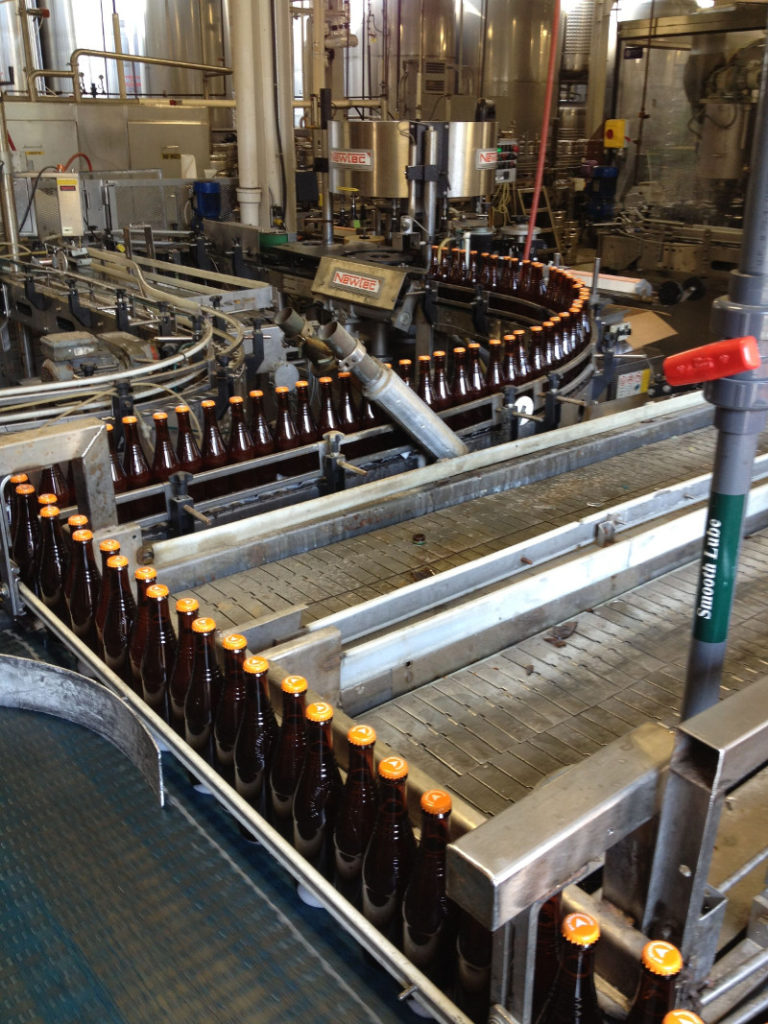
Back then, the brewery started, as many do, contracting its recipes out to established breweries. The company was working with Cool Brew and creating some really innovative beers, including their pineapple IPA.
The man (genius?) behind the recipes was Tom Schmidt for 30 years and in that time had toured the world setting up breweries from Cuba to Saskatoon. He brought a wealth of experience to Spearhead and was able to brew traditional styles or create more adventurous beers. At 70 years old, he’s still brewing for the love of it.
As the brand grew, Spearhead left its contracting partnership with Cool for a cheaper alternative. The product suffered and a bad batch had to be pulled back. Hayter recalls ordering a Spearhead beer at C’est What before he was involved with the company and getting in touch with the owners to tell them they needed to pull back their last brew. It was a strange way to get involved with the company, but not all first impressions need to be good.
After damage control and pulling the bad batch back, the company returned to Cool and product plus reputation turned back around. Hayter, who worked in the IT space and had created a beer reviewing blog to test out some new software joined in 2013 as an investor.
As the company continued to sell well through the LCBO and licensees and had added new products, they looked to open a physical brewery. As the search progressed, Spearhead, again, left Cool to contract brew elsewhere. In a classic “fool me twice” scenario, the new contract brewery put out a bad batch and again a run was pulled back in. Reputation and financing took another hit.
Next came a staggering blow from the LCBO. Due to the lack of product, they were pulling Spearhead beer.
The company was in a tough spot, no beer and no money: without the LCBO there would be no options. Management sat down with the LCBO, guaranteed supply, dropped all lines aside from Hawaiian Style IPA and Moroccan Brown Ale and moved from bottles to cans. LCBO agreed to continue to carry the product and Spearhead returned to Cool, again.
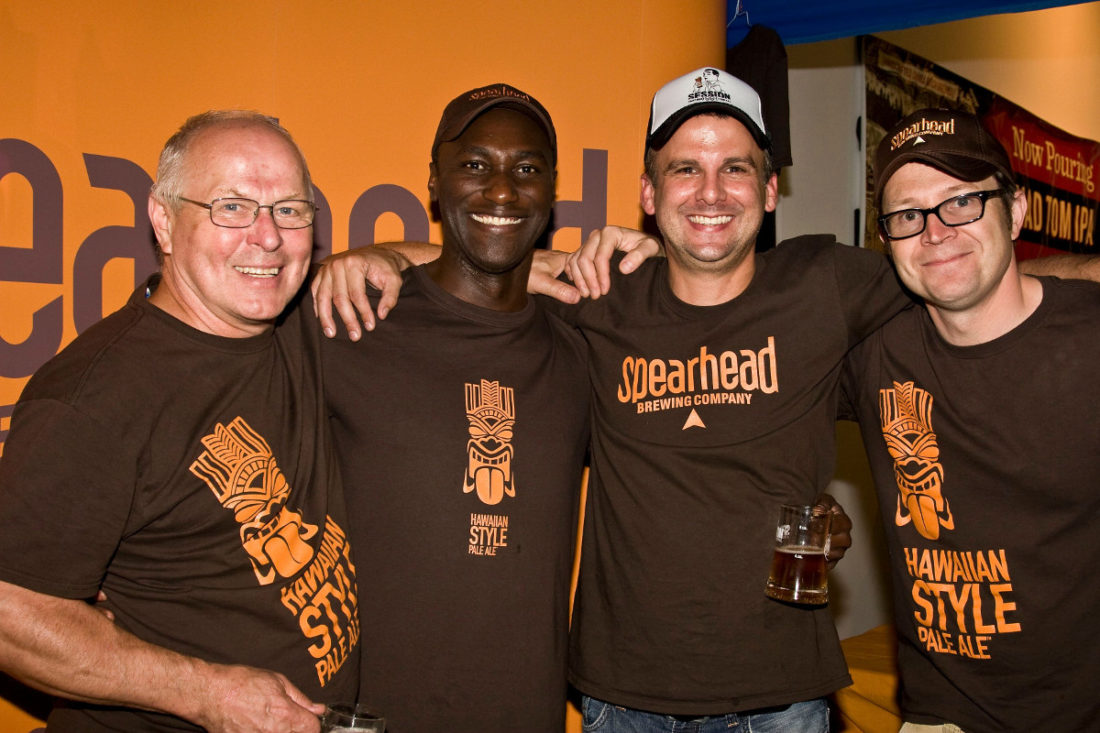
Having been twice bitten, the search for a bricks-and-mortar facility intensified. The team’s real estate search widened from Toronto to the GTA and even Lake Huron. Still, they could not find a space that fit their current needs, while allowing future growth.
The investment team was meeting in Kingston, where one of their members ran a business, to discuss their (lack of) options. Serendipitously, their Kingston investor took a call during the meeting. The call was from a tenant in a large industrial space that he owned, informing him they would be vacating the space. The soon-to-be empty space would be the perfect space for Spearhead and they took it.
The brewery opened a year ago in Kingston’s west end and has enjoyed a warm reception from the community. The taproom has grown, added a patio and now hosts shows that range from comedy to music to burlesque.
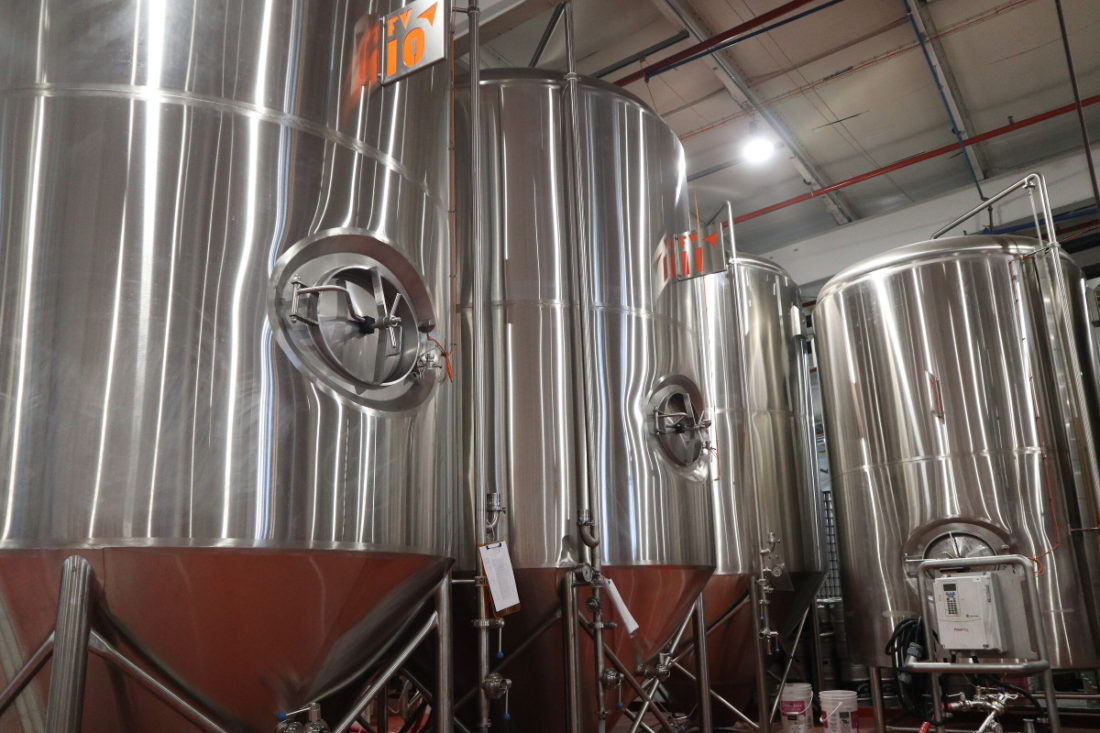
The eight-year journey of highs and lows taught Spearhead a lot of lessons – lessons they want to share with new breweries.
Their shop will produce 10,000 hectolitres this year and not all of it will be Spearhead beer. The company is working with smaller breweries, helping take on capacity and navigate listing with the LCBO. They even work with other breweries in providing delivery service. They are almost an incubation space for breweries. It’s a way for the brewery to share their experiences, but also to diversify their business offering.
For a brewery that was part of the trailblazing craft beer efforts in Ontario, living up to their name, their journey has been longer than most. It points to the dedication and perseverance of the team that stuck with it. Fantastic to see them celebrating a successful year in their new brewery—plus cool that Sam Roberts is involved.


